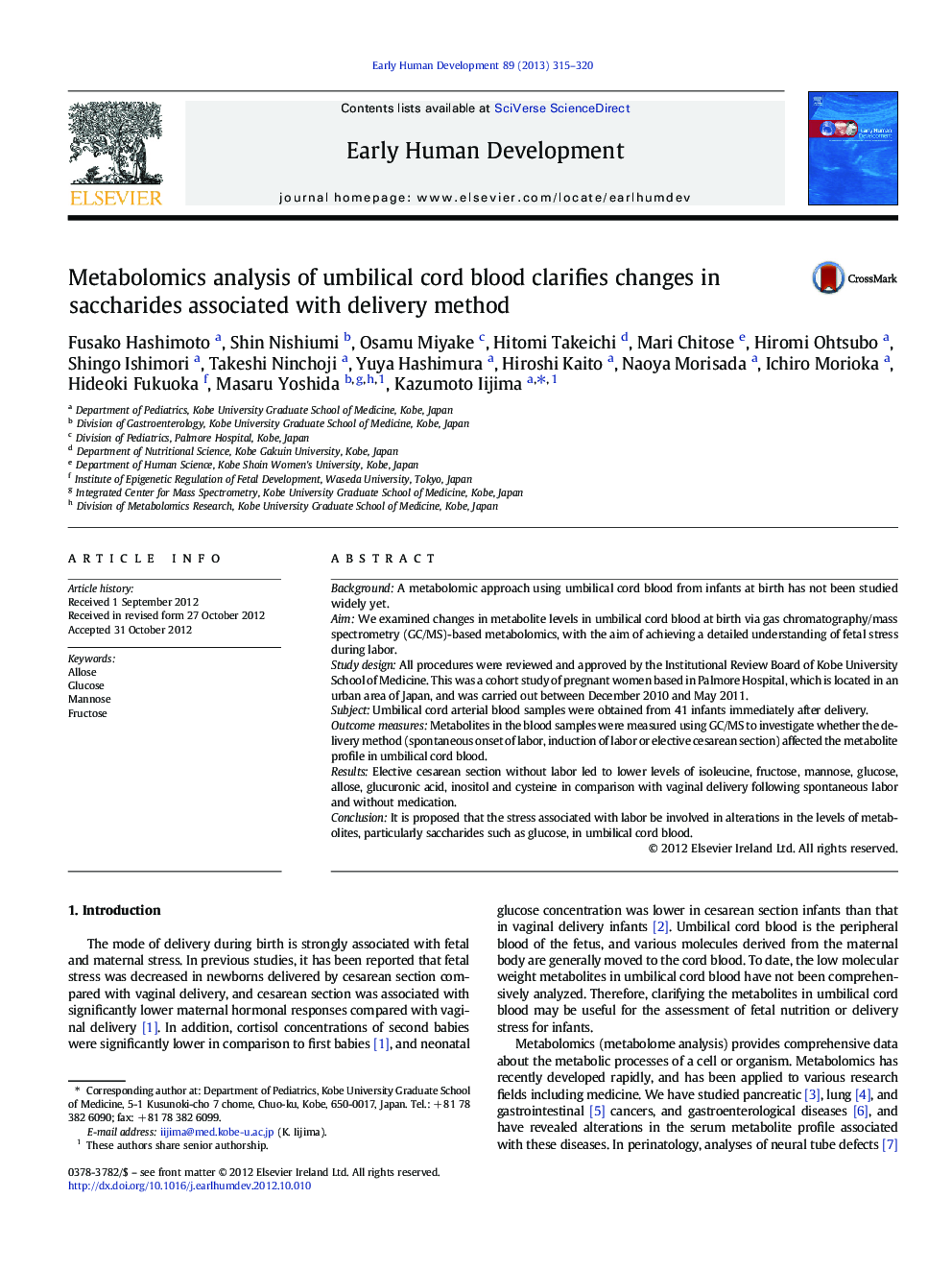| Article ID | Journal | Published Year | Pages | File Type |
|---|---|---|---|---|
| 6172013 | Early Human Development | 2013 | 6 Pages |
BackgroundA metabolomic approach using umbilical cord blood from infants at birth has not been studied widely yet.AimWe examined changes in metabolite levels in umbilical cord blood at birth via gas chromatography/mass spectrometry (GC/MS)-based metabolomics, with the aim of achieving a detailed understanding of fetal stress during labor.Study designAll procedures were reviewed and approved by the Institutional Review Board of Kobe University School of Medicine. This was a cohort study of pregnant women based in Palmore Hospital, which is located in an urban area of Japan, and was carried out between December 2010 and May 2011.SubjectUmbilical cord arterial blood samples were obtained from 41 infants immediately after delivery.Outcome measuresMetabolites in the blood samples were measured using GC/MS to investigate whether the delivery method (spontaneous onset of labor, induction of labor or elective cesarean section) affected the metabolite profile in umbilical cord blood.ResultsElective cesarean section without labor led to lower levels of isoleucine, fructose, mannose, glucose, allose, glucuronic acid, inositol and cysteine in comparison with vaginal delivery following spontaneous labor and without medication.ConclusionIt is proposed that the stress associated with labor be involved in alterations in the levels of metabolites, particularly saccharides such as glucose, in umbilical cord blood.
